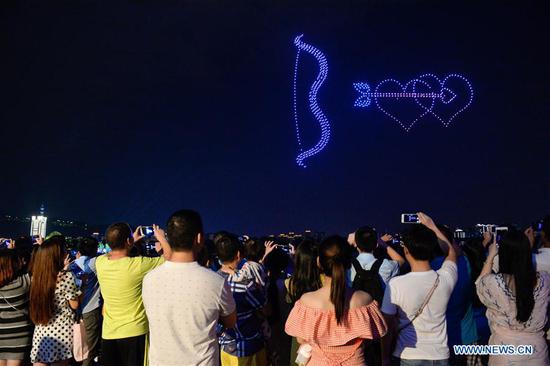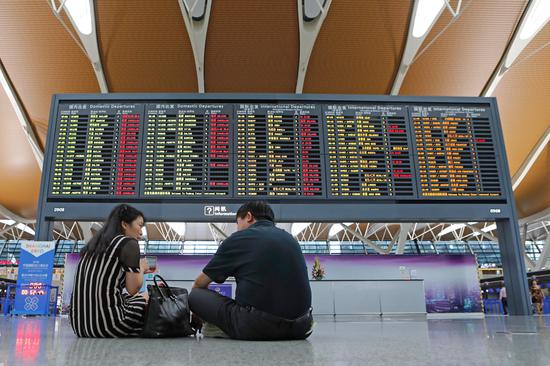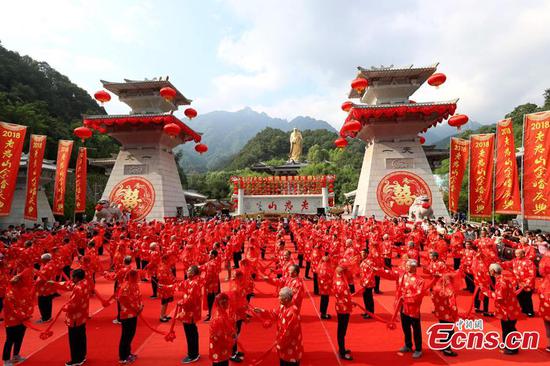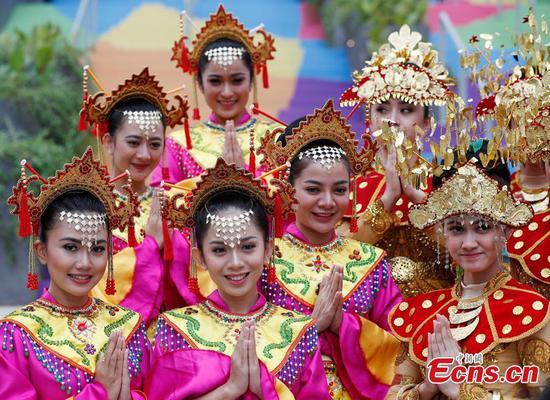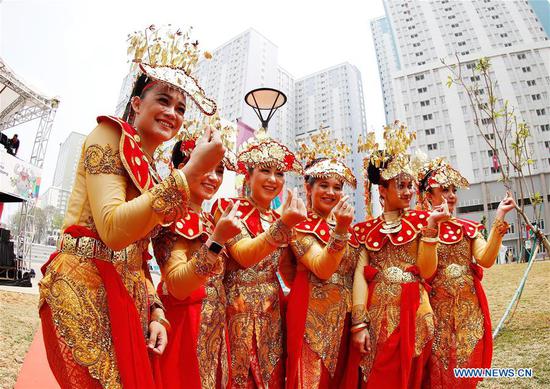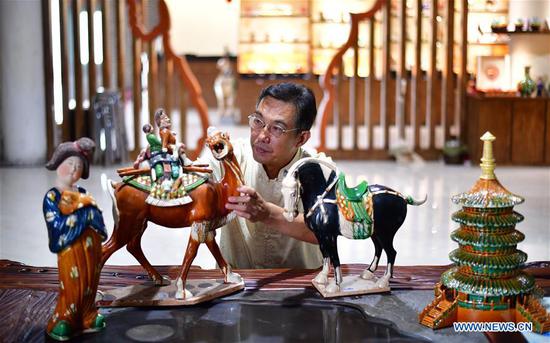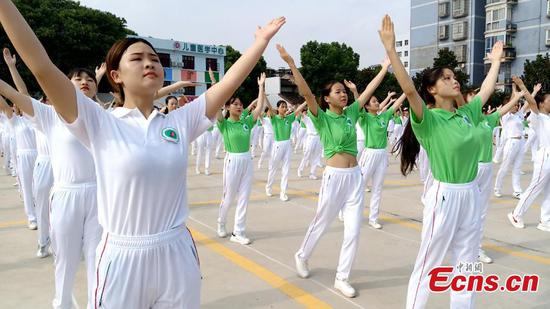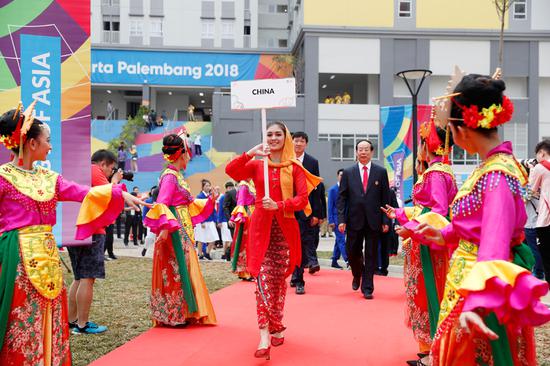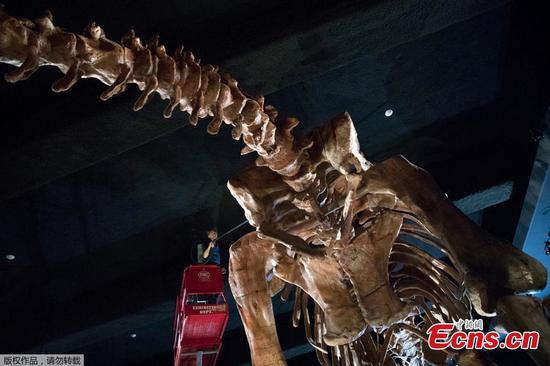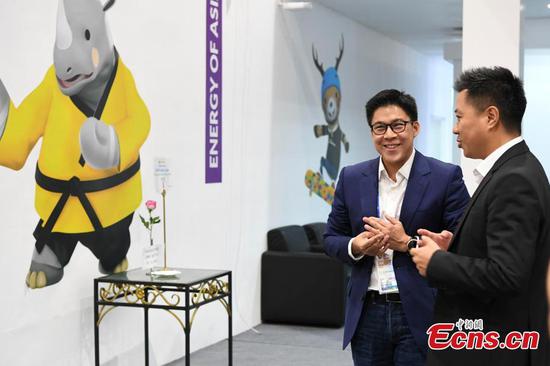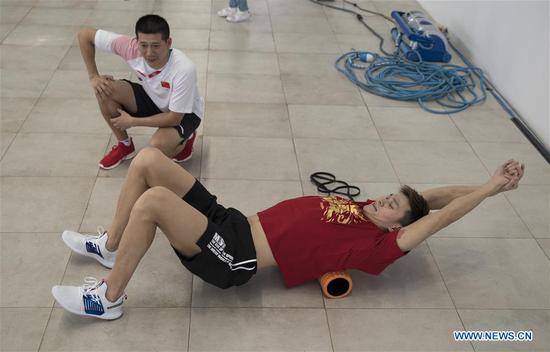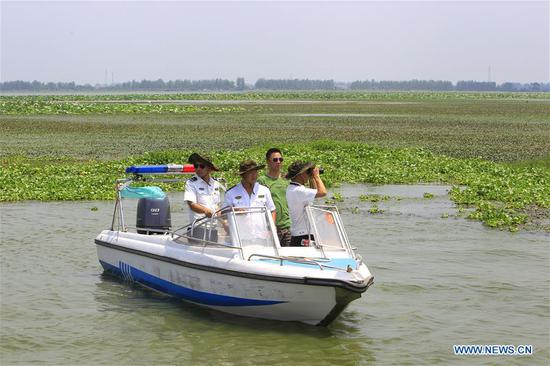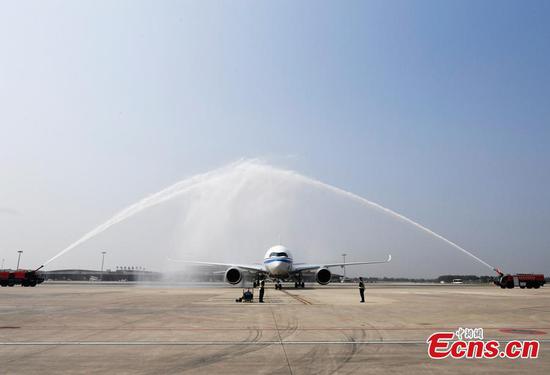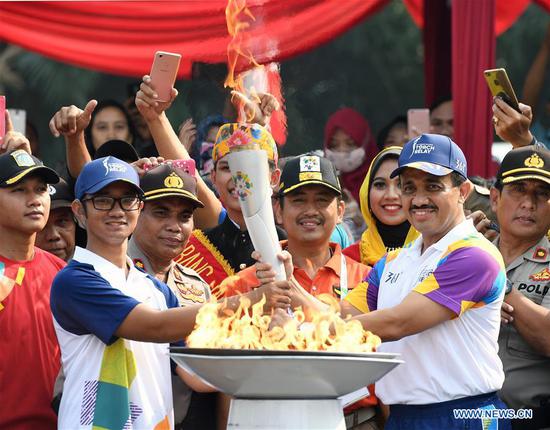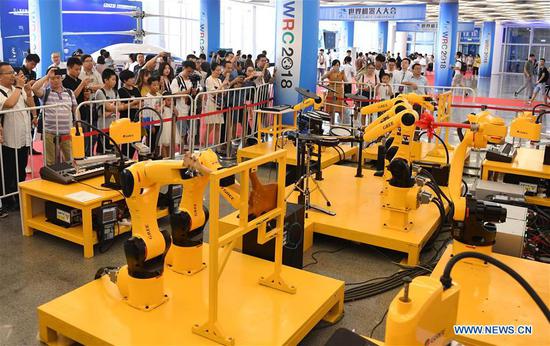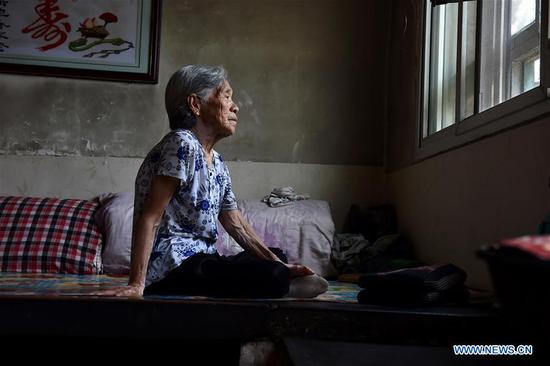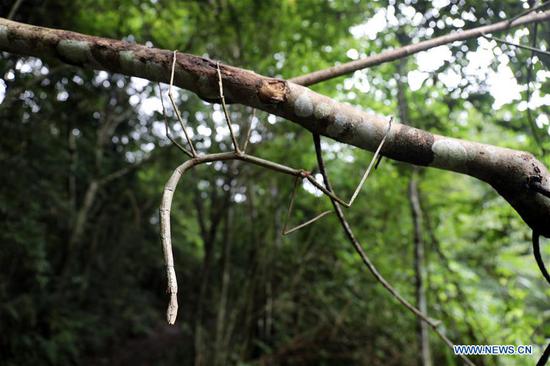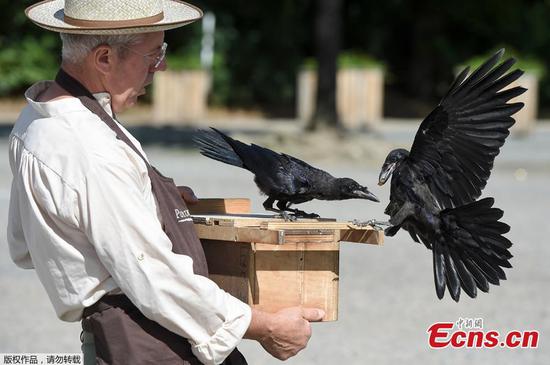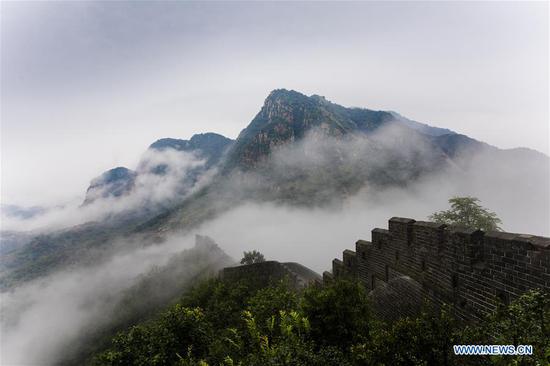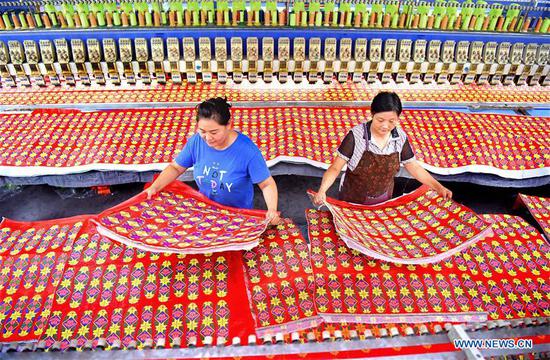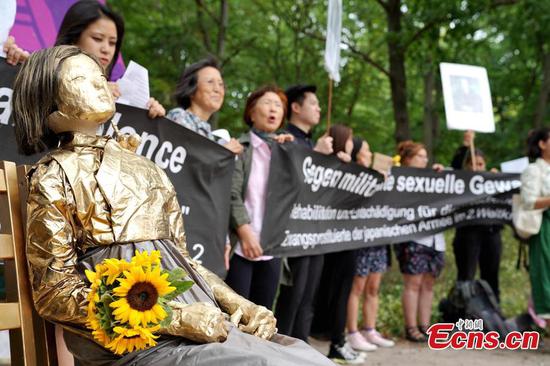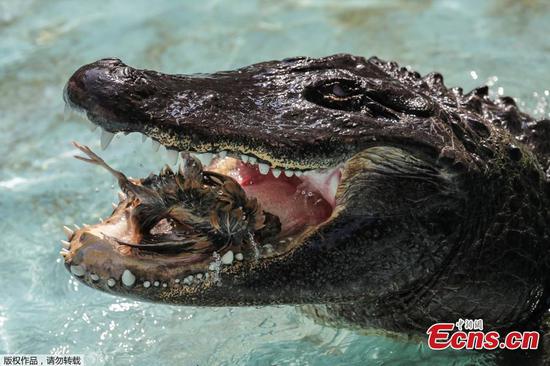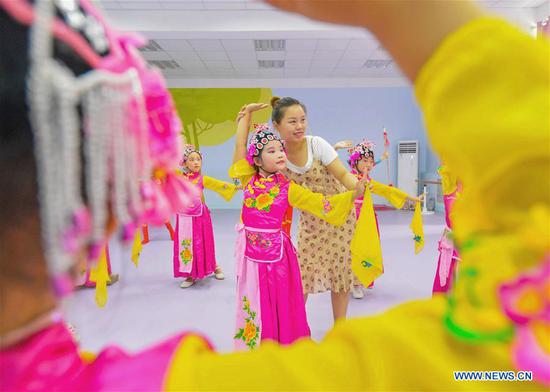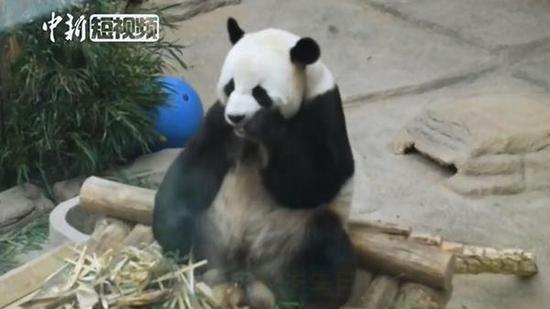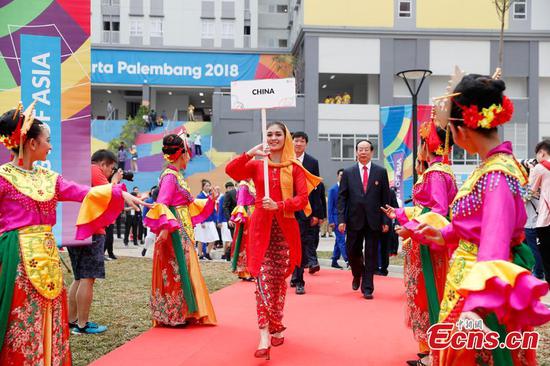
A flag-raising ceremony is held for Chinese athletes to the 18th Asian Games in Jakarta, Aug. 16, 2018. (Photo: China News Service/Liu Guanguan)
With the national flag having been raised in the athletes' village, China is gearing up for its 12th straight appearance at the Asian Games, the continent's biggest sporting event, in Indonesia.
From participating in to hosting the event, China has made, and continues to make great contributions to the development of sport in Asia since 1974.
The Asian Games has also borne witness to the transformation of the world's most populous nation into its second largest economy over the past decade.
People have every reason to be optimistic that Hangzhou, capital of Zhejiang Province, will put on another extravaganza in 2022, based on China's mature experience and strong capability of hosting international events.
FROM PARTICIPATION TO HOSTING
Witnessed by members and journalists, the Chinese delegation hoisted its national flag on Thursday, two days before the 18th Asian Games kicks off in the Indonesian capital, with more rookies stepping onto the path to the international sporting stage.
"I hope to perform my best here," said gymnastics world champion Xiao Ruoteng, showing great confidence ahead of his Asian Games debut.
"I feel honored and proud to embark on my first Asian Games journey. I want to win the gold medal with my team," said women's basketball player Li Yuan, born in 2000.
Absent from the Asian Games until the seventh edition in Tehran in 1974, China's landmark first gold in that year's tournament came after Su Zhibo triumphed in the shooting event.
Ten years ahead of first Olympic gold medal by Xu Haifeng in Los Angeles in 1984, China had already declared itself prepared to break into the world of global sports.
China moved up to the second place in the medal standings in its second Asian Games outing in Bangkok in 1978, trailing only Japan. After its legal status was reinstated by the International Olympic Committee (IOC) in 1979, China overtook Japan to top the Asian Games medal standings for the first time in 1982, marking the beginning of China's dominance in the tournament.
China's increasing exposure was not only reflected in medal count, but also in the fact that it has twice hosted the tournament, in 1990 and 2010.
The 1990 Asian Games was the first ever large-scale international sports event that China had hosted in the early stages of reform and opening up. Embracing the policy, Chinese people became increasingly open-minded to leisure activities such as sports, and warmly welcomed friends from around the world.
"China has been increasingly involved on the global stage since reform and opening up began, and there began a sense of urgency to show China's achievements in all fields," recalled Wei Jizhong, then Secretary General of the Chinese Olympic Committee.
Tens of millions of Beijing residents closely followed the Games, calculating how many gold medals could to be added to the tally every day. Every city that the Asian Games torch passed through on its relay journey celebrated its coming like a public holiday, with stores closed and students enjoying a day off to watch the procession.
The official mascot Panpan, based on the image of the Chinese panda, became extremely popular throughout the country, along with the Games' theme song, The Spirit Of Asia, all of which were helped by the hosts' substantial total of 183 gold medals, more than every other competing nation combined.
The second time that the Asian Games arrived in China was in 2010, two years after the country had impressed the world by hosting an Olympic Games described by then-IOC President Jacques Rogge as "truly exceptional".
China's number of gold medals at a single Games rose to a record of 199 in 2010, lifting the hosts past the total 1000-gold landmark.
Hosting several of the world's top sporting tournaments offered China useful experience in planning and executing international events.
China's first groundbreaking step towards hosting the Asian Games was achieved thanks to public support and donations.
One notable citizen whose contribution became known nationwide was Yan Haixia, a primary school student in Yancheng, Jiangsu, who made headlines in 1987 with her donation of 1.6 yuan (0.23 U.S. dollars).
Though Yan's contribution was small, its symbolism was huge, as the fifth grade student became the first citizen to voluntarily contribute to the 1990 Asian Games fund, setting an example for Chinese people from all walks of life. Over the following three years, the organizing committee received a total of 270 million yuan (some 39 million U.S. dollars) in public money.
"It's not just about me, but a choice of our generation," said Yan, who played her part in the torch relay and was invited to watch the opening ceremony.
Over the next two decades, China's economy grew so much that by the time the 2010 Asian Games in Guangzhou came around, the country did not need to rely on public donations.
CONTRIBUTIONS TO BE CONTINUED
The country's economic transformation was also reflected in its people's mindset, from striving for first place in the medal table, to promoting public health through a national fitness program.
China no longer dwells on hosting a successful sporting event in order to boost its national pride, as Cao Jing, a volunteer for the Beijing Asian Games, put it. "Back then, I was regarded as a star in the school if I was chosen as a volunteer, but when it came to the Guangzhou Games 20 years later, it was more about the volunteer's professionalism than simply the pride and motivation of being a volunteer."
The country's State Council announced plans in October 2014 to develop China's sports industry into one of the largest markets in the world, setting the goal of raising the sector's annual output to five trillion yuan (810 billion U.S. dollars) by 2025.
In achieving this, China would support the emerging sector by eliminating industrial and policy barriers to form a policy system that is conducive to the sector's rapid growth, along with removing regulations that hinder the sector's development, scrapping unreasonable administrative approval procedures and opening all fields allowed by existing laws and regulations to the public.
The country encourages social capital to invest in the industry, such as constructing sports facilities and providing related products and services.
Fitness has been gaining nationwide momentum over the past four years, ever since the Chinese government made it a key national strategy.
Since the launch of "National Fitness Day" in 2009, the notion of investment in health is taking firmer root among Chinese people, with physical fitness becoming an increasingly prevalent topic.
19 grassroot sports were added at last year's Chinese National Games, providing a platform for grassroot sports development to coincide with that of elite sports.
"As a badminton fan, I feel honored and happy to compete with other high-level opponents at the National Games," said 54-year-old Guo Xiaohong from Beijing.
To revive Chinese soccer, the country issued its "Overall Plan of Chinese Soccer Reform and Development" in March 2015, covering almost every aspect of the sport, including the management system, professional clubs and leagues, the national teams and grassroots soccer.
Having been separated from the State General Administration of Sports, the Chinese Football Association (CFA) now enjoys more autonomy over its finances, personnel management and matters directly related to football.
Although China failed to qualify for the 2018 World Cup in Russia, there have been many positive steps for Chinese soccer in recent years, such as the opening of tens of thousands of football-themed schools.
With great importance having been placed on the transformation from big to strong sporting country in recent years, China no longer solely considers the medal count as its main target when participating in international tournaments.
Liu Guoyong, Secretary General of the Chinese delegation at the 2018 Asian Games, highlighted the delegation's four aims in Jakarta.
"Firstly, we hope to show a positive image to the world since China's reform and opening up. Secondly, we hope to display our competitiveness through outstanding results. Thirdly, we want to have friendly communication with our Asian friends. Last but not least, we want to prepare our young athletes for the 2020 Tokyo Olympic Games."
As the baton will be passed to Hangzhou on September 2, the Chinese city vows that the tournament will be held in a "green, intelligent, economical and civilized" manner.
The year of 2022 is undoutedly a big year for Chinese sports. Prior to the Asian Games, Beijing will become the first city in the world to host both the Summer and Winter Olympic Games.
The world's eyes will be on China in 2022. China will be ready, as always.









